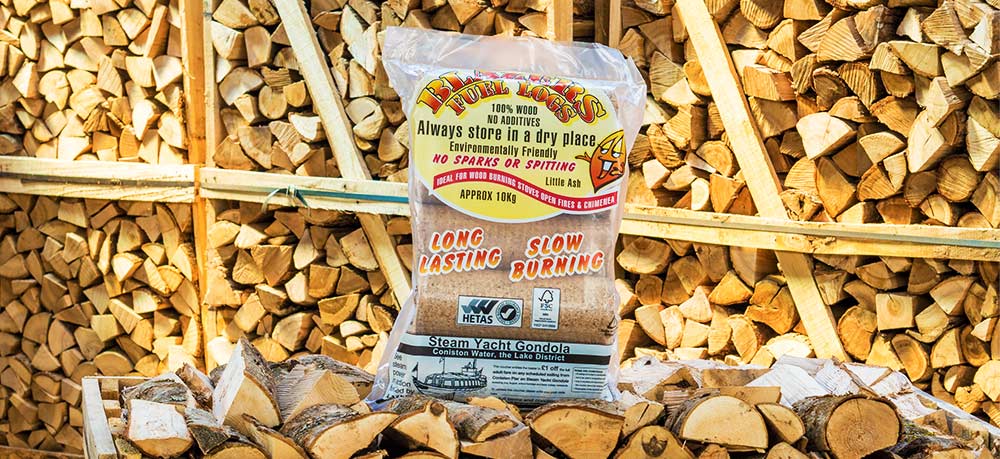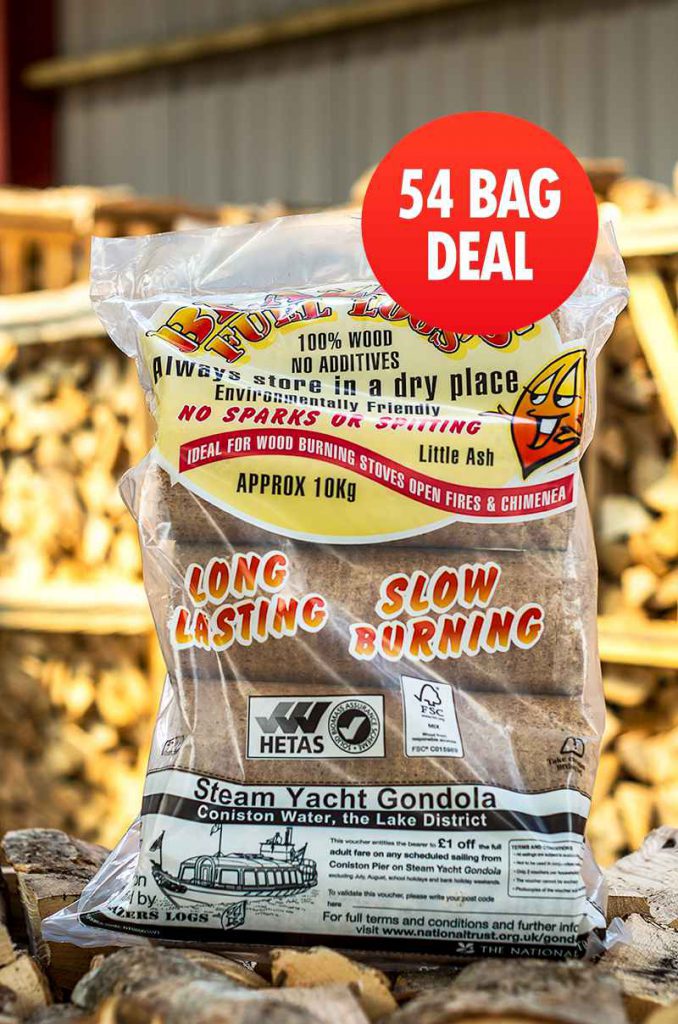Eco logs: their benefits vs. traditional firewood

An increasing number of our customers ask us about Eco Logs, specifically, Blazers Eco Logs. But what exactly are Eco Logs and what are their benefits (and shortcomings) over traditional logs?
As you may or may not be aware, Eco Logs are an eminently practical alternative to old-fashioned firewood logs. They are made from sawdust, wood-shavings (and other offcuts/ waste from the timber industry) that have been heated and mechanically-compressed to form a briquette of highly-concentrated calorie-dense fuel.
They contain no artificial chemicals or additives — they are a pure organic biomass — and can therefore be used in household fireplaces and for cooking appliances that use solid fuel. But which option is right for you? Should you opt for conventional firewood logs or start using eco logs? Both types of logs have their own advantages and disadvantages, so it’s important to be well-versed on the advantages and disadvantages of Eco Logs vs traditional firewood.
The Advantages of Eco Logs
Eco Logs burn more efficiently than standard logs. They contain almost no moisture, which allows them to release heat faster than conventional logs when burned. What’s more, because a smaller amount of each log’s weight is made up of water, eco logs can burn for longer than traditional firewood logs (there are obviously a lot of variables here but we are assuming a common hardwood of the same weight, for example Ash, seasoned to 20% moisture.
The heightened efficiency of eco logs means that, in the long-run, they are comparable in their cost-effectiveness when compared to their traditional counterparts (again, this is a very loose statement as there are a lot of variables at play here: your type of stove, stove efficiency, the type of wood it’s compared to, is it softwood or hardwood, the moisture content of the logs, etc.).
“There are also two important cofactors of their high calorie density and negligible moisture content”:
- Because they are a mechanically manufactured standard size product, Pound for pound (or kilogram for kilogram — whatever your preference), they take up far less space than natural logs — even kiln dried logs well stacked in crates. This makes them ideal if you live in built up area or anywhere where storage space is at a premium.
- High density combined with low-moisture also equates to low-ash residue. Low ash means less mess and less cleaning up!
The takeaway is: if you’re looking for an affordable, practical fuel-source, Eco Logs are an ideal candidate.

The Disadvantages of Eco Logs
Eco logs lack the aesthetic appeal of traditional logs. What’s more, they don’t offer the same range of gorgeous aromas that natural logs do. Firewood logs look beautiful and homely when they are burned in a fireplace, and their aromas can be both pleasant and evocative. Eco logs simply don’t have the same visual and aromatic traits. So if these qualities are important to you, you should stick with natural firewood logs.
If you want a fuel that has very low levels of moisture (like eco logs do) but still has the appearance and smell of traditional firewood, you should consider using kiln dried logs. While kiln dried logs aren’t quite as efficient their engineered counterpart, they are more efficient than air-dried firewood logs. Kiln dried logs represent a reasonable compromise between regular seasoned logs and eco logs.
We hope that taking a look at the advantages and disadvantages laid out in today’s blog post has helped you decide what type of fuel is right for you. Whatever type of fuel you choose to use, Logs Direct are here to help.

